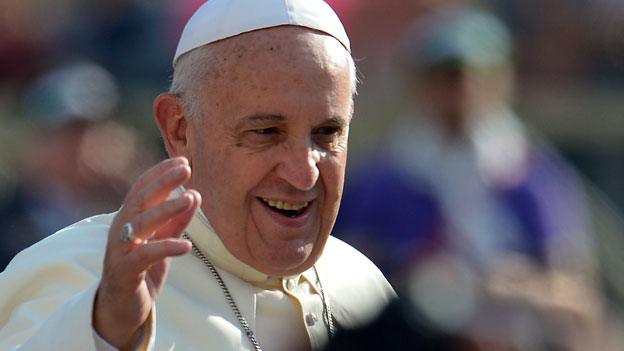Catholic synod: Bishops meet to focus on family
- Published
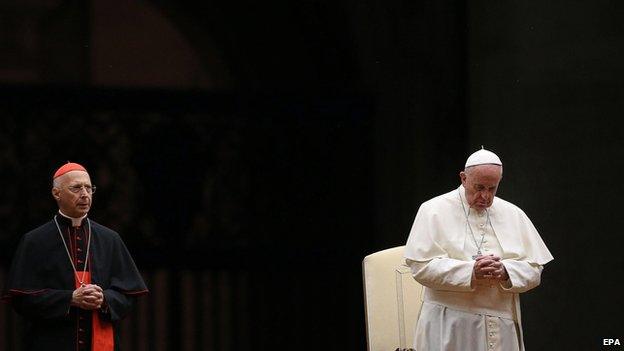
Called by the Pontiff, the rare conference could set his reputation in history.
Roman Catholic Church leaders from around the world begin a two-week brainstorming session this weekend, on how to better present their teachings on marriage, family life, and sexuality to their flock.
In Vatican terminology, the closed-door session is called an "extraordinary synod", and the current Pope's historical legacy could well depend on its perceived success or failure.
The conference agenda was drawn up after an unprecedented opinion survey of the faithful, ordered by Pope Francis last year, to find out why Rome's teachings are increasingly being rejected or ignored.
A ban on artificial contraception decreed by Pope Paul VI in his Humanae Vitae encyclical in 1968 has been routinely disregarded by Catholic couples for years.
And while the Church continues to insist on the indissolubility of Christian marriage, which it considers a sacramental union of a man and a woman, not merely a civil matter; many countries, even strongly Roman Catholic ones, have legalised abortion, divorce and same-sex marriages.
The Philippines, which has Asia's largest Roman Catholic population, has recently passed a birth control law allowing the government to distribute free contraceptives, which could be the prelude to legalising divorce too.
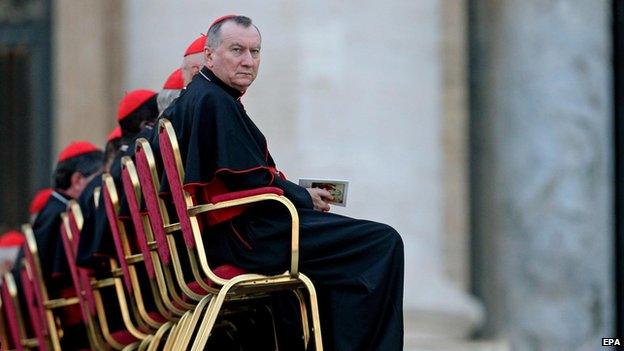
The Pope says he wants bishops to participate freely, rather than have Vatican insiders dictate the agenda.
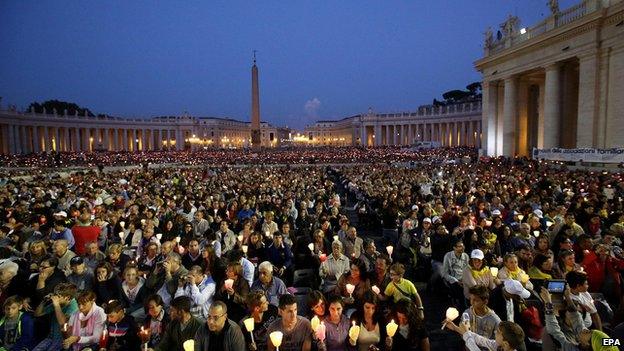
Thousands attended a prayer vigil led by Pope Francis in preparation for the synod
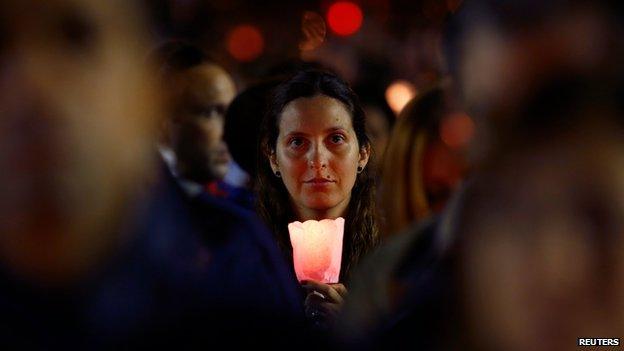
The synod is the result of an unprecedented opinion survey of the Roman Catholic faithful.
'A new balance'
One issue likely to be the focus of intense debate at the synod is the admission to Communion of people who are divorced and remarry without first obtaining a church annulment.
At present this is not permitted, although the pontiff has hinted that some relaxation in the rules regarding the annulment of marriages, a costly and time-consuming process, might be possible in the future.
He has already set up a committee to examine the possibility of simplifying the procedure, which in effect declares there never was a valid marriage, so the people involved are free to marry again.
Pope Francis' own views on sexuality are conditioned by years of working in the teeming slums of Buenos Aires.
He stresses the importance of understanding the problems faced by the poor, rather than focussing only on obedience to unbending rules.
"We cannot insist only upon issues related to abortion, gay marriage and the use of contraception," Pope Francis said in a long interview, external with a fellow Jesuit, a little over a year ago.
"The dogmatic and moral teachings of the church are not all equivalent," he said. "The church's pastoral ministry cannot be obsessed with the transmission of a disjointed multitude of doctrines… We have to find a new balance, otherwise even the moral edifice of the church is likely to fall like a house of cards."
The 263 participants in the Synod of the Family are almost all celibate males, with no first-hand experience of creating their own families, although a dozen hand-picked Roman Catholic married couples will sit in and share their experience with the synod "fathers".
Pope Francis will address the synod when it opens but intends to use the meeting mainly as a listening experience.
He wants the world's bishops to involve themselves freely in the future governance of the Church, rather than being relegated to the sidelines, as at many previous synods, when the agenda was set and proceedings were tightly controlled by the powerful cardinals of the Roman Curia, the central government of the Church, based inside in the Vatican.
Extraordinary synods are rare and called to address urgent challenges faced by the Church. This one will be watched particularly closely, both inside and outside the Church - whose future could depend on what emerges.
- Published3 October 2014
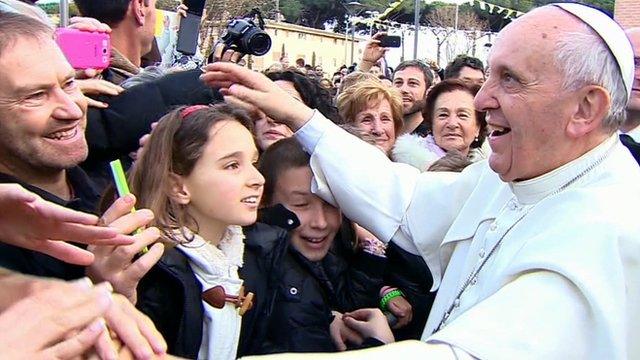
- Published25 May 2014
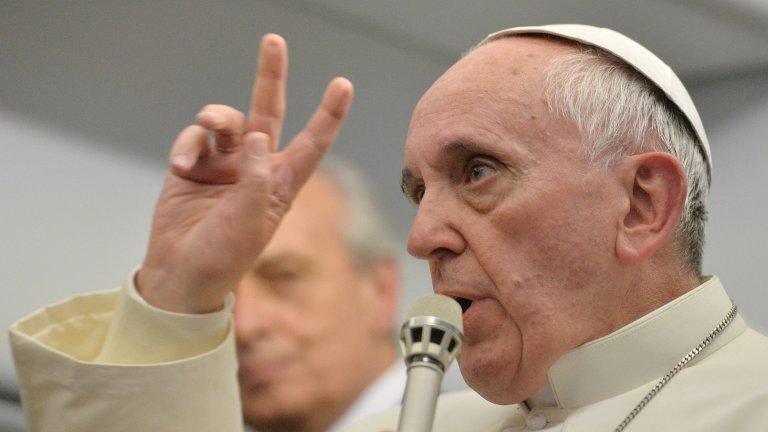
- Published3 October 2014
